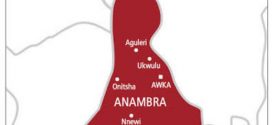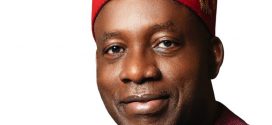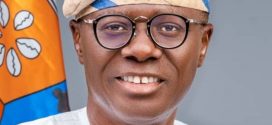On June 10, 2019, the Bill to amend the Public Holidays Act was assented to by the President, effectively replacing May 29 as democracy day, with June 12 of every year. The President was yielding to the demand of Nigerians over the years, for the official recognition of the electoral mandate that was given to Chief M.K.O. Abiola, as President of the Federal Republic of Nigeria. Generally, law should reflect the will, tendencies and perspectives of the people, which is what the National Assembly and the President have demonstrated, by declaring June 12 as Democracy Day. It is good to give a little account of what people went through in getting to the point where we are now as a nation, in order to appreciate the enormity of the sacrifices that Nigerians have put into the June 12 struggle, and then to sharpen our perspectives, going forward.
The late General Sani Abacha, as the self-proclaimed Head of State then, had become more like a maximum ruler, who did not broach any form of opposition at all and he made no pretences about that. By all means, his was the most draconian of any known regime in Nigeria, meaning that a declaration of any form of opposition to his plans and policies would spell doom for anyone. When it became clear that the battle to reclaim the June 12 mandate was getting tougher than anticipated, the progressive politicians, activists, labour and civil society organisations, decided to align forces together. This was spearheaded by the National Democratic Coalition, NADECO, through Chief Abraham Adesanya. They all met and set up an umbrella body known as Joint Action Front of Nigeria, JAFCON, headed by Chief Adesanya himself. They insisted that Chief Gani Fawehinmi, SAN, must be involved in the activities of JAFCON directly, so he nominated me to represent him. Meetings were held in the law office of Chief Adesanya on Simpson Street in Lagos, wherein I was chosen as the Secretary of the body. JAFCON then decided to honour Mr. Walter Carrignton, the United States Ambassador to Nigeria then, for his courageous support for the cause of June 12 and the struggles of the people of Nigeria. After some meetings, Chief Adesanya nominated Mrs. Kofo Bucknor-Akerele as alternative chairperson and thereafter the actual planning shifted to her law office in Western House.
We got feelers that government was bent on aborting the event, so we decided upon a plan. We announced a public center in Surulere as the venue but had in mind the house of Chief Ayo Adebanjo, also in Surulere. So, we set up in the two locations, and started the event proper in the public center. I was also nominated as the chaperon for the event. Just as I started announcing the dignitaries, armed soldiers swooped upon the venue, snatched the microphone from me and started shooting sporadically. They scattered all the tables and other equipment, already arranged. By this time, Mr. Carrignton and his beautiful wife, Dr. Arese (from Delta State), were already at Chief Adebanjo’s house, for the award ceremony proper. By the time the security personnel realized what had happened, the event had been concluded and it was well reported in the news. I little imagined what followed thereafter.
One early morning in November of year 1997, armed military men from the Directorate of Military Intelligence, Apapa, stormed our house in Ebute-Metta. It was first a game of arguments and legal gymnastics about human rights and freedoms, but by the end of the day when I met face to face with the man in charge, one Col Frank Omenka, my mind became settled. He assured me, in no time, that as long as Gen Sani Abacha was on the throne, I will be his priced asset. There were days that we were all lined up outside, just to gaze at the sun. The cells were overcrowded, very hot and you couldn’t find space to sleep or stretch yourself, fully.
In that DMI detention center was Senator Olabiyi Durojaiye, who was being detained because of June 12 and his relationship with Mrs. Kudirat Abiola. There was also “The Tunnel Man”, Mr. Moshood Fayemiwo, publisher of Razor Magazine, who was so christened because he was kept in the underground cell, where we had no access to him, save his constant praise and worship sessions and his very loud prayers. The list of detainees was very long, Chief Victor Okafor, (Ezego), Honourable Chima Nzeribe, Senator Musa Adeede and so many others. Some young military officers, also in detention for no specific offense, all made our stay memorable. I became sick, about the third month. I was diagnosed for a chronic infection, so I was advised to visit the Naval Hospital, Apapa, for treatment.
The day of my hospital visitation coincided with children immunization day, so there were many nursing mothers in the hospital, with their babies. Now it happened that because I was considered to be a dangerous detainee, I was handcuffed, both hands and legs, to the hospital. We were all lined up to see the doctor, on a long bench. Some women later joined me on that row, with their babies. Unknown to them, I was carrying some special ‘chains’, on my hands and legs. And I was really looking wild, having refused to shave, all the while. So, the soldier in charge of us beckoned to me to get up to see the doctor. As I got up, the chains on my hands and legs made a very loud noise, like some local masquerade, about to dance. Now looking at me in mortal terror and bewilderment, the women seated near me jumped and fled with their babies, supposing they had been sitting with an armed robber or a condemned criminal, from Kirikiri prisons, all the time. I had no time to explain to them that I was an innocent political detainee, as they were all gazing at me, both with some suspicion and pity, as if I might just snatch their bags or even their babies.
By the time I limped into the doctor’s consulting room, my eyes were flooded with tears. I just couldn’t hold myself again. I mean, here am I, an activist, a lawyer, fighting for the good of Nigeria, being paraded as a common criminal, in hand and leg cuffs. It was truly traumatic. The doctor was a nice man, who gave me tissue papers to wipe my tears and treated me well. He nonetheless gave me a shocker, when he diagnosed me for fistula in anu. So, it became clear that I needed urgent medical attention, but Col Omenka would not bulge, boasting to me constantly, that even if he was transferred from DMI, he would take me along with him, as I had become his personal detainee. My health was deteriorating. Chief Fawehinmi successfully challenged my arrest and detention in court and secured an order for my immediate release, through Hon. Justice Ibrahim Auta (as he then was), but it was never obeyed. Through the efforts of Chief Fawehinmi, other lawyers, activists and especially Amnesty International and Pope John Paul II, I was finally recommended for surgery at the Military Hospital, Yaba.
It turned out to be a day to remember, for life. And I will tell you why. The vehicle that took me from DMI to Yaba, was directed to drop me at the gate of the hospital, in hand and leg cuffs. At first, I didn’t know the implication, but later on, it dawned on me that it was a humiliation parade. The soldiers deliberately dropped me at the gate so that I could trek the long distance to the main hospital, in order to showcase me as a criminal. So, as I was walking the distance, with my chains clicking and singing, nurses were trooping out of their offices, to have a vintage glance of me, other members of staff soon joined them, all wondering I’m sure, what kind of offence I must have committed, to be so chained. It was an enduring moment, as armed soldiers stood on my left and on my right, while I walked in pains, to the main hospital. Well, I endured it all, and even managed to give a dry smile, though I couldn’t wave to the crowd, because of the chains on my hands.
I finally met the doctor, did some X-rays and was told that I had to be admitted. And a soldier had to remain with me, on guard. The consequence was that I had to be chained to an iron bed, in the hospital, just so I would not escape. Unknown to me, my soldier guard had been well instructed. He would be all over me in the early evening, prompting me to eat well and drink water, but would disappear in the middle of the night and early mornings. The consequence would be that I would not be able to visit the toilet, no matter the pressure. It affected me greatly the first two days, but by the third day, I got a solution, to try and fast and drink less water, so I could stay longer in bed, chained down. I had the surgery, and was able to now receive visitors, mostly my colleagues from Gani Fawehinmi Chambers. It was on my hospital bed that the news broke one day, that Gen Sani Abacha had died, and I was later released from the hospital, to go home. No charge, no apology, nothing. Just like that, for about eight months. Col Frank Omenka himself later escaped to Brazil, on asylum. The good side to this trauma was that before my arrest, I was saving money to rent a house, get married and then start a home. Upon my release, it turned out that Chief Fawehinmi was paying my salaries for all the period that I was in detention and when I got the money, it was enough to rent a two bedroom flat in Onike.
I have shared this story to make a point. June 12 cannot be about individuals or a family, even though the heroic roles of some persons should be acknowledged. So many people died, lost their jobs, liberty and limbs, all for that struggle, not to mention those who suffered untold persecutions and deprivations. What is needed is an action that will touch every hero and heroin of the June 12 revolution (most of who are unknown), through genuine democratic engagements, that will usher in true fiscal federalism, resource control, electoral reforms, good governance, eradication of poverty and joblessness, holistic restructuring and fundamental constitutional amendments, all to be achieved through enduring legislation. That is the true June 12 that Nigerians suffered and died for.
 Hottestgistnaija.com
Hottestgistnaija.com




